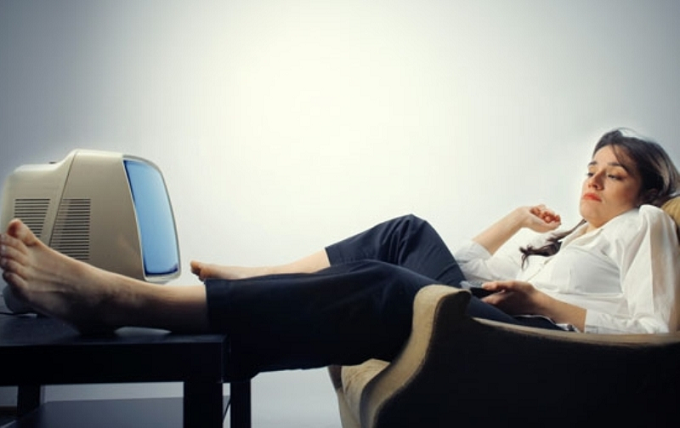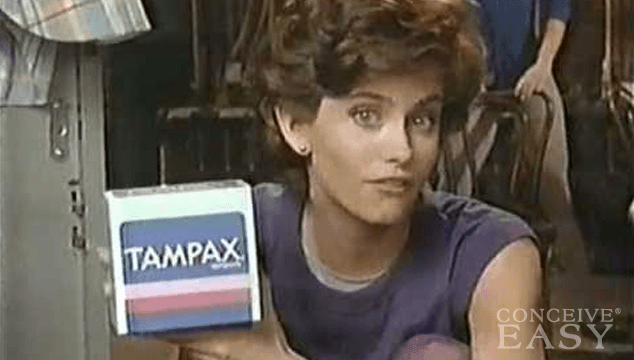![]() The information provided by our expert should not constitute a diagnosis of your condition. Always consult a medical practitioner or healthcare provider for a formal diagnosis. By making use of this content, you agree that ConceiveEasy and the expert assume no liability.
The information provided by our expert should not constitute a diagnosis of your condition. Always consult a medical practitioner or healthcare provider for a formal diagnosis. By making use of this content, you agree that ConceiveEasy and the expert assume no liability.
Your period (also known as menstruation) is the bleeding that occurs each month at around twelve to sixteen days after a woman’s body releases an egg (also known as ovulation). But can you have a period without ovulating? Claim Your 20 Free Ovulation Tests – Click Here
If the egg gets fertilized when it is released, this is when a pregnancy will occur. If the egg is not fertilized, this is when a woman should get her period. However, this is not always how it happens.

Bleeding When There Is No Egg?
If a woman’s body does not release an egg during her cycle, this is known as an anovulatory cycle. This means that ovulation is not occurring. Technically, if a woman is not ovulating or releasing an egg, she should not have any bleeding at all.
However, many times a woman will still experience period-like bleeding during her cycle even though she is not ovulating and her body is not releasing an egg. This bleeding is called anovulatory bleeding and even though it is like a regular menstrual period, it is not the same thing and should not be confused for a normal period.

Ovulating or Not – How to Know?
It can be very difficult to know for sure if you are ovulating or not, especially if you are not tracking and charting your cycles each month. Regular, normal menstrual periods can often be very similar to anovulatory bleeding and sometimes women do not even know the difference.
If a woman charts her cycles regularly, however, she should be able to see that she is not ovulating properly.
If a woman is not charting her cycles, she might not know that her period is any different than normal. However, sometimes, a woman who is not ovulating might notice that her cycles are different than normal, either heavier or lighter than what she is used to.

Why Does Anovulatory Bleeding Occur?
If a woman is not ovulating, it might not make much sense that she is still bleeding. But, there is a reason that it occurs. Estrogen might continue to slowly build up in a woman’s body, but still not reach the levels needed for ovulation. The estrogen levels might then begin to drop dramatically.
This will cause estrogen withdrawal bleeding, which can sometimes be mistaken for a normal menstrual period. Another reason that anovulatory bleeding might occur is when, slowly over time, the endometrium builds up so much that the uterine lining can not be sustained. This bleeding is more common, and is known as estrogen breakthrough bleeding.

What Causes Anovulatory Cycles?
There are many reasons why women have anovulatory cycles, and more often than not, they can be helped and worked with. However in some cases, anovulatory cycles cannot be helped. Listed below are several causes as to why women may be experiencing this issue.


Girls Who Have Started Menstruating
The name for the first period a girl will get is called menarche. During the first year after her menarche, she will have anovulatory cycles and that is why her periods would not be regular, and she may continue to not ovulate for several years. This is why girls can take several years for menstruation to regulate after the menarche.
And in most cases, girls who first start menstruating are not looking to conceive!
They need to focus on school and creating a life for themselves. Therefore, it is not a concern for girls to have anovulatory cycles for this reason!

Women Who Are Perimenopausal
Perimenopause is the fluctuation of hormones that women experience which leads up to menopause, and this period could go on for 10 years. Hot-flashes and mood swings are common during this time, and irregular cycles happen too.
When women are perimenopausal, they are ovulating less and will have anovulatory cycles. Perimenopause can start in women who are in their late 30’s and can last until they are around 50-51 when menopause finally comes, which means their egg supply is empty.
Unfortunately, there are certain autoimmune conditions that some women have, or if they have had to go on chemotherapy or radiation treatments that can cause premature menopause due to the fact that they ended up going through premature ovarian failure due to harsh treatments for cancer or autoimmune conditions.
Nothing can help these women become fertile again unless they look into conceiving through in-vitro by using a donor egg.

However, there are situations where your ovulation cycle can become regular again for women who have been having anovulatory cycles.
Listed below are times when a woman may experience anovulatory cycles that can be easily treated which causes them to bleed without ovulating.

Body Weight That Is Too High Or Too Low
The fact of the matter is if there is too much body fat, it will disrupt your hormonal levels because fat carries extra estrogen, and too much estrogen can disrupt ovulation. Women who are extremely overweight or obese will have anovulatory cycles for this reason. On the flip side, women who are extremely underweight do not have enough body fat to help regulate hormonal levels.
The only way to fix this issue is to see a doctor who can refer you to a dietician that will help you gain or lose the weight needed in order to help your body function properly again, which means having regular ovulatory cycles.

Having Intense Exercise Habits
Exercise is important to keep your body healthy, but if a woman is exercising too much, that will disrupt her hormonal levels.
Training for a marathon may not be the optimal time to try to get pregnant!
Therefore, she will not be ovulating regularly and may or may not even get periods. If she does, they are not likely ovulatory. Exercising less with lower intensity is the only way to help get her body back to normal.

Living a Sedentary Lifestyle
If you are not getting any exercise at all other than walking slowly when you need to, it is not only detrimental to your health, but it is harmful for your reproductive system.

Therefore, you will not be ovulating and you will end up with irregular anovulatory cycles.
Going for a fast-paced walk for a half hour, three times a week, is perfect for your body and will help your body function properly again.

Poor Eating Habits
You could be eating the wrong foods that are hurting your reproductive cycles, instead of helping it even if you have a fast metabolism and are at a healthy weight. If you are eating processed foods that are high in sugar and simple carbohydrates- you are hurting your cycles by stressing your pancreas out by producing too much insulin that is in your blood.
High insulin levels in the blood will inhibit ovulation, but you can still end up getting a period due to other hormones at work.
Changing up your eating habits by using advice from a dietician or a nutritionist will help you. One easy thing to do is instead of eating white bread, white pasta, pastries, white rice and anything that is too sugary- replace those with whole grain bread and pastas instead.
It takes your body longer to process those carbs and as a result, less insulin is used, meaning there will not be much in your blood which will help you ovulate on a regular basis again.

High Levels of Stress
Life is full of stress, but if the stress is so high to the point you can barely function, that is bad for your body!
In order to help reduce stress levels, you will want to be sure to take up yoga, meditation and find healthy methods to escape like listening to music or reading a good book to take your mind off of things.

How Can I Ovulate Again?
If you think that you have anovulatory bleeding, or just think that you are not ovulating properly, talk with your doctor. Your doctor can help you figure out for sure whether or not you are ovulating, and can help you be sure whether or not you are. If your doctor determines that you are not ovulating, he or she can help you figure out a way to get your body back to normal.
Your doctor will do some tests to see if you have a condition such as polycystic ovarian syndrome which can also cause women to have anovulatory cycles. They have too much testosterone in their bodies, which prevents regular ovulation from happening.
Staying fit and maintaining a healthy weight by limiting refined sugars and carbs will help them function better.
But sometimes even then they need additional help, and women can start with an all-natural fertility blend like ConceiveEasy that helps to regulate cycles and promotes ovulation, or in more dire cases, a prescription may be required for a fertility drug like Clomid.
Doctors will test testosterone levels, as well as progesterone levels, uterine lining as well as blood work to test for certain antibodies that could play a role as discussed previously in regards to some autoimmune conditions can be to blame. Your doctor will also order an ultrasound to examine your ovaries and uterus.
If nothing can be found, then your doctor will tell you to improve your lifestyle, and diet. Sometimes polycystic ovarian syndrome is not diagnosed immediately.
If you have improved your lifestyle and are at a reasonable weight, and you are still having anovulatory cycles, then you will have to go on fertility treatments. Your doctor will discuss the next step with you in that case.

Bottom Line
Odds are unless you are going through premature menopause, or have an autoimmune condition that could be complicating the issue, you will be given a treatment that will help you ovulate again regularly. Good luck on your trying to conceive journey!











Comments